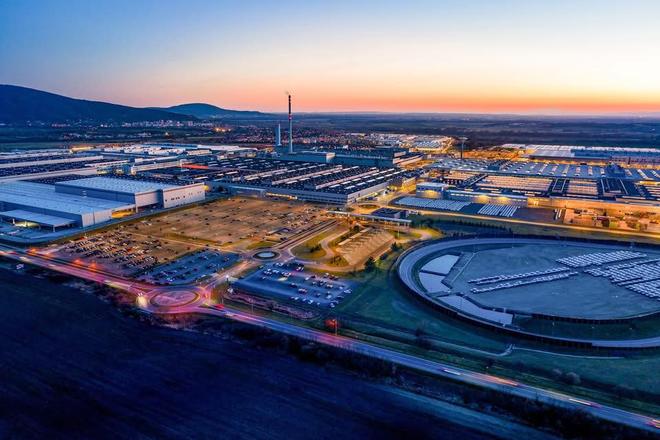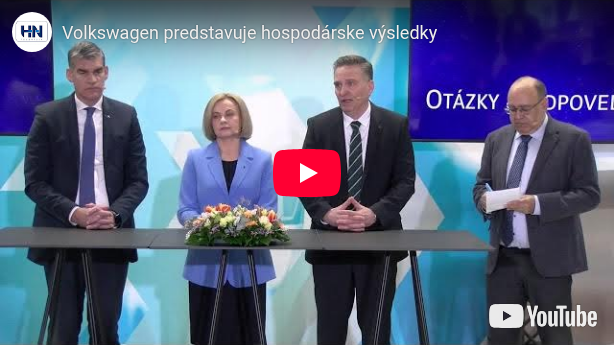On the day the United States began imposing a 25 percent tariff on car imports, one of the world’s most export-reliant auto plants—Volkswagen’s factory in Bratislava—reported solid annual results.
Despite the growing shadow of protectionism, Volkswagen Slovakia ended 2024 with a 6 percent increase in turnover, reaching €12.5 billion, and an 11 percent rise in pre-tax profit to €355 million. The factory produced 341,111 vehicles last year, up 3.7 percent, reinforcing its status as a backbone of the Slovak economy and one of Europe’s largest multi-brand assembly sites.
“In spite of persistent supply chain disruptions and shifts in the production programme, we managed to improve both our production and financial performance,” said Wolfram Kirchert, the plant’s chairman and technical board member. He credited the results to workforce flexibility, efficient resource use and continued cost optimisation.
Volkswagen Slovakia has invested €1.2 billion since 2020—mainly into the BETA+ project, which includes the VW Passat and Škoda Superb, and preparations for a fully electric Porsche Cayenne. Total investment since the plant’s founding in 1991 now stands at €5.8 billion.
Tariff turbulence ahead despite record output and major investments
New production launched in 2024 included the Škoda Superb saloon and plug-in hybrid versions of both the Superb and Passat. Later in the year, high-performance models such as the Audi RS Q8 and Škoda Superb Sportline were added to the mix.
But the good news comes with a warning. Kirchert confirmed that the newly introduced U.S. tariffs—set at 25 percent for European vehicles—will significantly impact the plant. Although there are no plans to shift production to the U.S., he said the issue is being closely examined by the wider Volkswagen Group. Exports to the United States already declined last year, accounting for 16 percent of total sales, down from 20 percent the year before. Sales to China also fell, from 19 to 12 percent, amid similar trade threats. In contrast, the European market share rose from 49 to 61 percent.
With more than seven million cars produced in Slovakia since 1991, VW Slovakia remains the country’s largest private employer and an essential pillar of exports. Yet the company is operating in a tightening climate. Without new projects from parent firms, Slovak car production is projected to peak by 2027—driven solely by the new Volvo plant in Košice—before declining.
Slovakia’s manufacturing costs are now the highest in Central Europe, on par with Austria, following recent fiscal tightening. That could make it harder to attract future investments in an increasingly competitive automotive landscape.
For now, however, the mood in Bratislava is buoyant. VW Slovakia paid out an average bonus of €2,288 per employee for 2024. Environmental goals were also met, with emissions and waste reduced by nearly 67 percent since 2010.
Whether this momentum can withstand the mounting pressure of global tariffs remains an open question.



